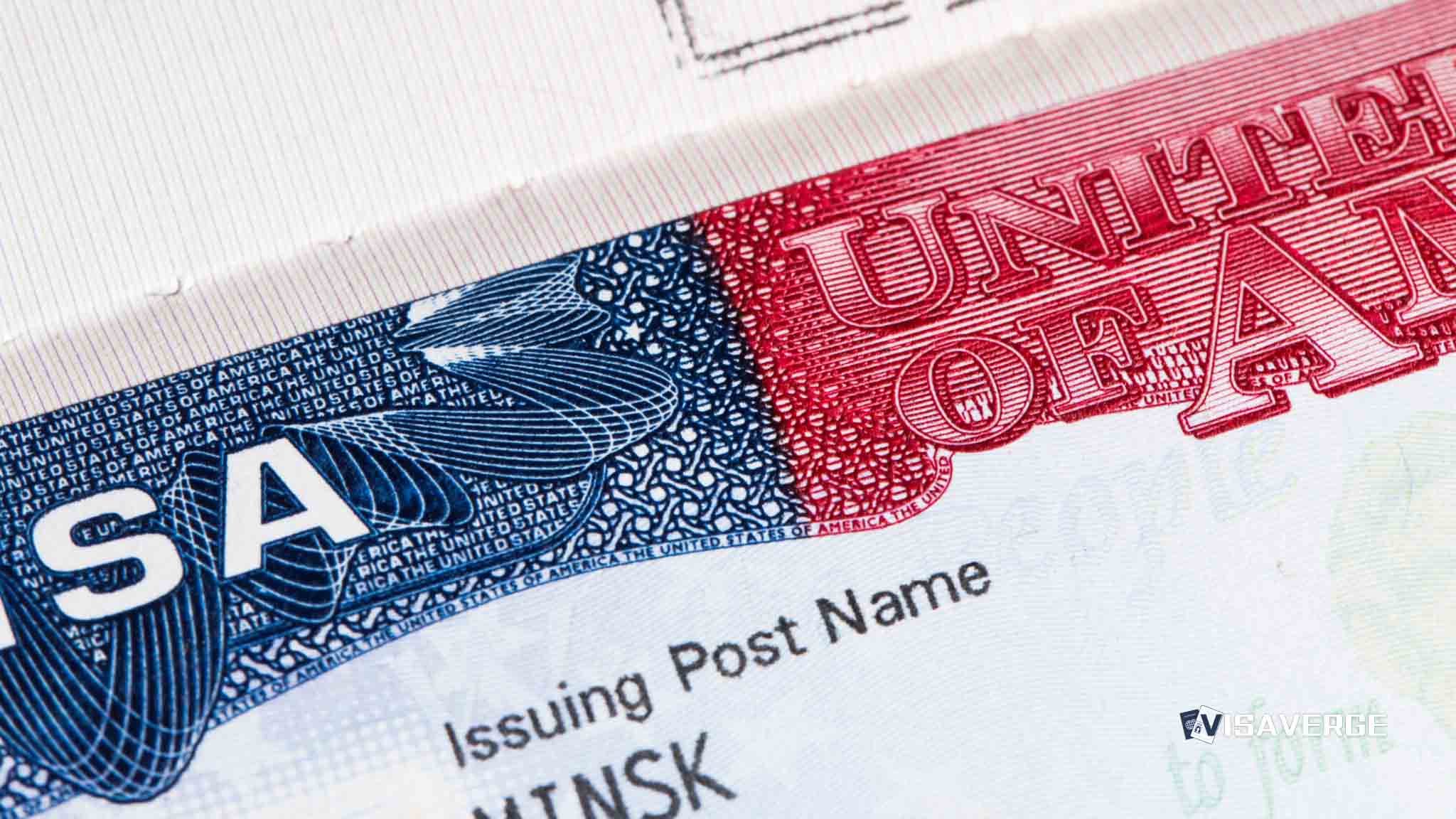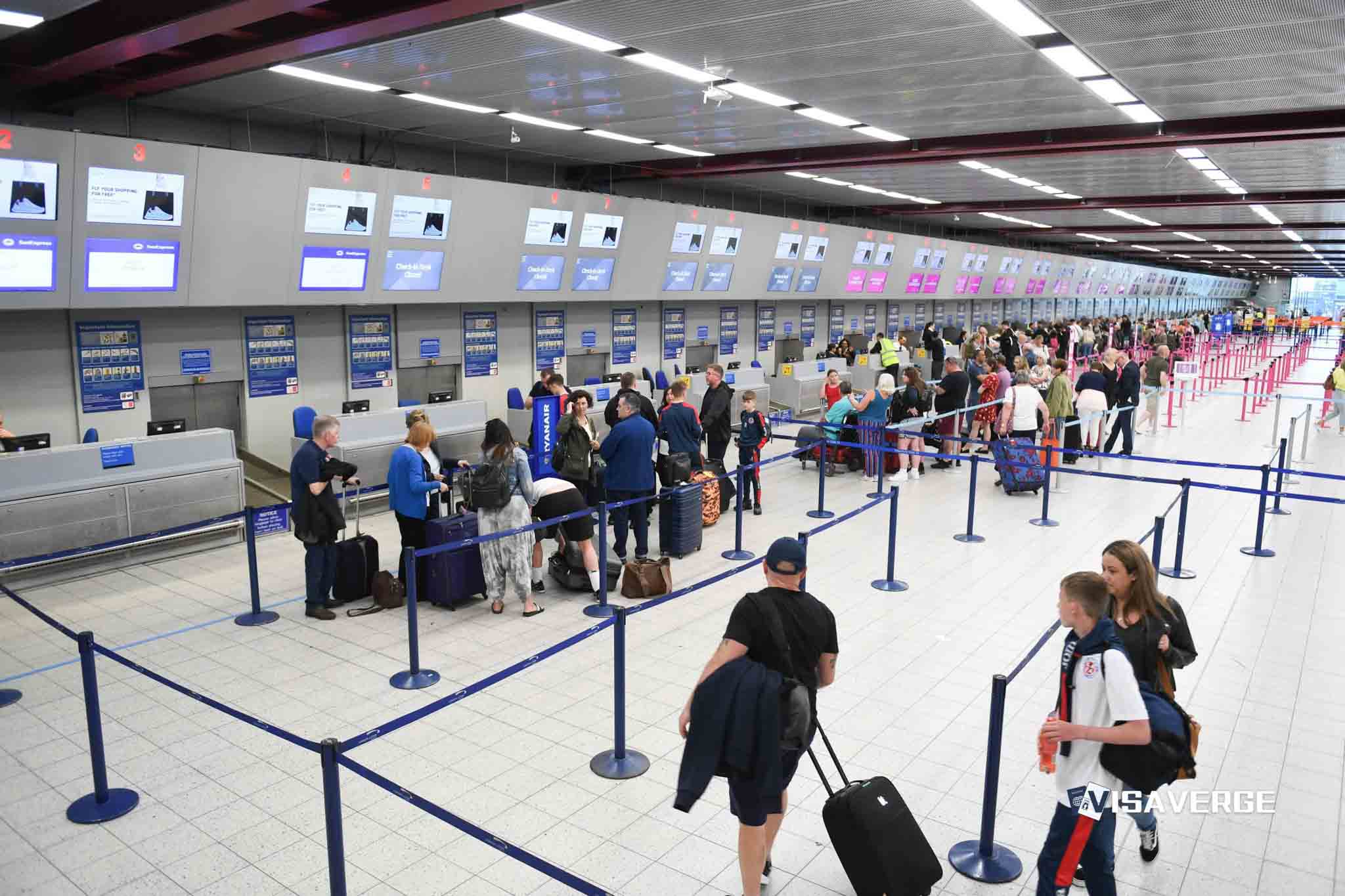Foreign workers with approved H-1B petitions may see their next steps slowed if a government shutdown hits while they are awaiting consular processing, but most casework at U.S. Citizenship and Immigration Services (USCIS) will continue. USCIS is largely funded by filing fees, so H-1B petition approvals generally proceed during a government shutdown, while the U.S. Department of State controls visa interviews at consulates and embassies overseas.
Those consular services are also fee-based, yet they can be scaled back, delayed, or limited to emergencies if resources tighten or staffing drops during a prolonged lapse in funding. The bottom line for many families and employers is simple: approvals on paper may keep coming, but getting a visa stamp could take longer.

State Department guidance and local variation
The State Department has said that passport and visa services will continue “as the situation permits,” which means local conditions matter. If fee reserves and staffing hold, interviews can move forward; if not, posts may reduce services, extend wait times, or in some locations pause most routine cases.
Past shutdowns saw some consular posts slow down and, in limited cases, stop taking new non-emergency applications. According to analysis by VisaVerge.com, outcomes during prior lapses have varied by country and post, which makes local updates and email notices from consulates especially important for people relying on consular processing.
What applicants should assume and do
Applicants should not assume their appointment is off. If your visa interview is scheduled, plan to attend unless you receive an official cancellation or reschedule notice from the consulate or embassy. Some posts will keep routine interviews going, while others may pivot to emergency cases only.
That difference is often visible in appointment portals and automatic emails sent from the post handling your case. In a fast-moving shutdown, even people who already traveled to the visa city might find time slots reshuffled on short notice, so same-day checks are wise.
USCIS processing vs. consular interviews
USCIS processing, including decisions on cap-subject and cap-exempt H-1Bs, tends to remain active because the agency’s funding does not depend on annual appropriations. That means H-1B petition approvals can be issued during a shutdown, and employers may receive notices as usual.
For workers outside the United States 🇺🇸 who require a consular interview to get a visa stamp, that approval is the first step; the visa interview is the second step that can face delays. When people plan start dates, even a short pause can ripple through payroll, client projects, and relocation plans—especially for families with school-year needs or spouses who must coordinate travel.
Practical effects and common experiences
Employers and attorneys report that the hardest part is uncertainty. Some posts keep regular staffing; others trim hours. When a shutdown drags on, fee reserves at certain posts may stretch thin, which in turn affects how many interviews they can run.
Workers in the middle of consular processing often need to:
- Rebook flights
- Change hotel plans
- Extend stays with family while waiting for the next appointment
A brief shutdown may cause a simple delay; a longer one may cause postponements or cancellations for non-emergency interviews until conditions improve.
Applicants should watch for direct messages from posts and check online case portals often. If you have a scheduled slot, keep documents ready and arrive on time unless told otherwise. If you see a “case refused” note under section 221(g) after an interview, that may just reflect standard administrative handling and does not necessarily relate to a shutdown.
For those who have not yet scheduled, open appointment calendars may display fewer dates, longer gaps, or a notice that only urgent cases are being accepted. That pattern has appeared in some past shutdowns when posts adjusted their workloads.
Quick summary: what continues and what may pause
- USCIS casework proceeds: Fee-funded operations generally continue, so H-1B adjudications and notices keep moving.
- Consular services depend on resources: Visa interviews may be delayed, reduced, or limited to emergencies if a shutdown is lengthy or staffing is cut.
- Assume your interview stands unless told otherwise: Attend as planned unless the consulate or embassy sends you an official change.
- Expect slower timelines: Even where interviews run, processing times can lengthen and new appointments may be harder to get.
For official updates on visa services and consular operations, monitor the U.S. Department of State’s website at U.S. Department of State – U.S. Visas. Posts often update local pages and send notices through appointment systems. Those messages are your most reliable signal for whether interviews will take place as scheduled.
Practical steps for applicants during a lapse
- Watch your email and appointment portal daily. If your appointment remains on the calendar, plan to attend. If it is canceled or moved, the system should show new details.
- Keep your documents ready. Bring approval notices, passports, photos, and supporting papers as listed in your appointment letter. Having a complete file helps if posts shorten interview windows.
- Plan for flexibility. Book refundable tickets where possible and prepare for short-notice changes.
- Stay in touch with your employer and attorney. If your start date depends on stamping, let your team know about any shift so they can adjust onboarding plans.
- Prepare for possible emergency criteria. If a post limits services to emergencies, be ready to explain urgent needs if they apply to you.
Context and human impact
Travelers often ask whether shutdown patterns differ by administration. In recent years under President Trump and President Biden, core principles have been consistent: USCIS casework continues because it’s fee-funded, while consular operations depend on each post’s resources and may scale back if a shutdown is long. The lived reality is local: a worker in one city may be interviewed on time while a friend elsewhere faces a last-minute reschedule.
Workers whose families depend on a school calendar or a spouse’s job may feel these delays sharply. When a parent misses a planned arrival, childcare and housing plans can stretch thin. Employers also face project changes when a start date slips. These human costs are why close monitoring matters. A timely alert can save a costly trip or help an employer adjust a client deadline before it becomes a crisis.
Final takeaway
Consular processing is a two-step path: approval by USCIS, then visa issuance by a consulate. During a shutdown, the first step usually stays on track, while the second step can slow due to local limits. The best defense is information:
Watch for official emails, check portals, and keep your case file organized. When operations recover, those who are ready tend to move quicker through the queue.
If you have an appointment scheduled during a shutdown, the safest plan is to prepare as if it will happen and pivot only if the post tells you otherwise.
Frequently Asked Questions
This Article in a Nutshell
During a government shutdown, USCIS generally continues adjudicating and approving H-1B petitions because it is largely fee-funded. The U.S. Department of State, which runs consular visa interviews overseas, may reduce services, extend wait times, or limit routine appointments to emergencies if fee reserves and staffing are constrained. Applicants with scheduled interviews should plan to attend unless they receive an official cancellation; posts will notify via appointment portals or email. Practical effects include rebooked travel, extended stays, and delayed start dates. To mitigate disruption, check appointment portals daily, keep documents ready, maintain communication with employers and attorneys, and prepare for flexible start dates or emergency-only criteria at consulates.








